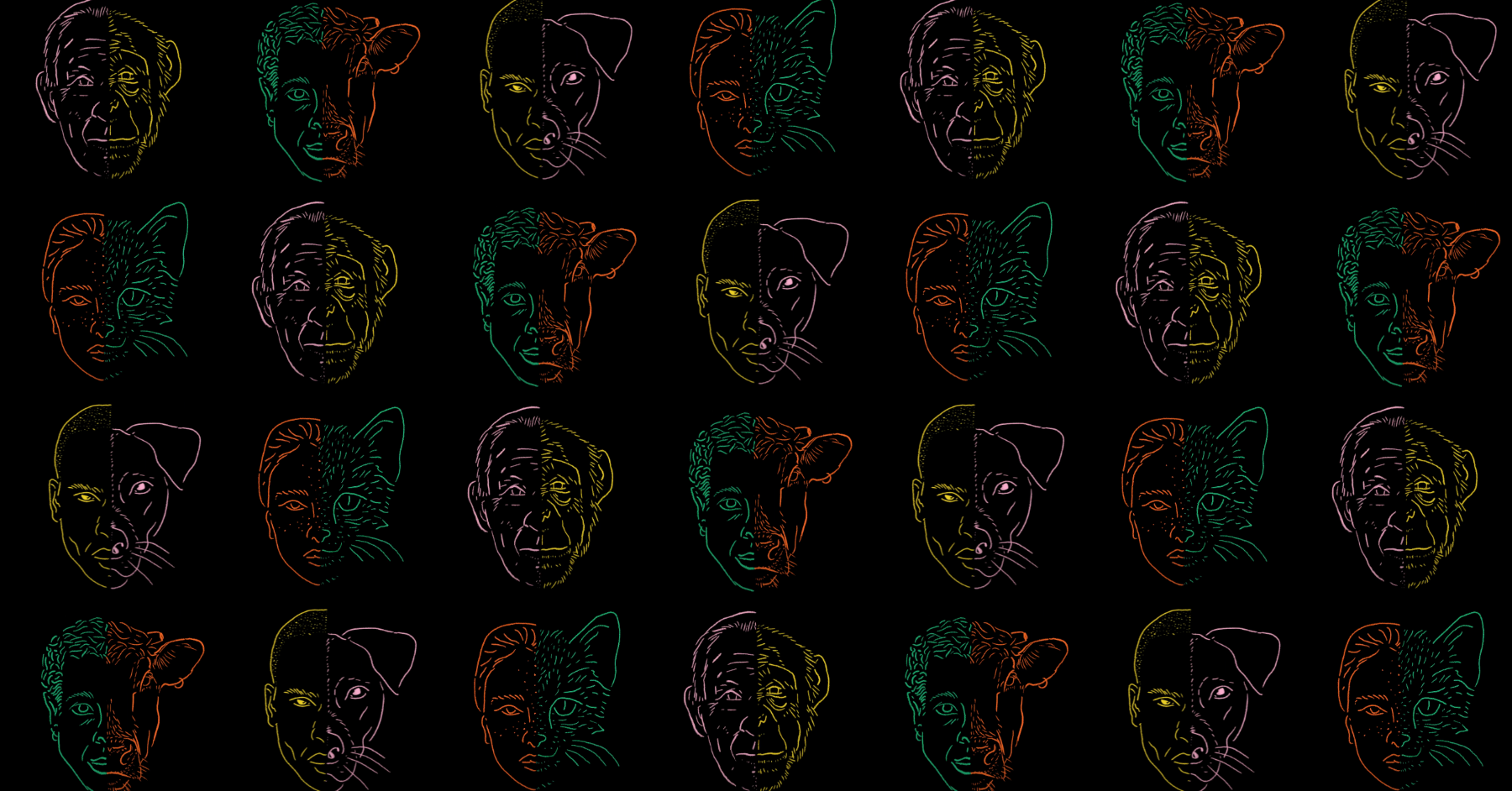
Without Speciesism, Animal Experimentation Would Not Exist
Today, June 5th, is World Day Against Speciesism, and we invite you to celebrate with us – even as we acknowledge that, in our efforts to end nonhuman animal experimentation, every day is a day against speciesism.
Speciesism is the belief system that underpins, empowers, and defends all manners of nonhuman animal use and exploitation, including experimentation.
Conceived of most simply as the belief that some species are superior to others, speciesism is just as seamless as it is pervasive. It insidiously and quietly brokers unequal and exploitative relationships between humans and nonhumans, manifesting an “irrational prejudice that puts humans on a pedestal” and offering hollow justifications for nonhuman animal use, generally, and nonhuman animal experimentation, specifically.
Indeed, most humans believe it’s ok for us to breed, confine, hurt, torture, and kill nonhuman beings – for the sake of human curiosity, understanding, or health – because they belong to different species.
Nothing more.
Behind speciesism’s ideological veil, we find only a “selfish notion of perceived human specialness”.
Speciesism has long been used to justify our subjugation and use of nonhuman animals, but the term itself was first coined in 1971 by British psychologist Dr. Richard Ryder and later popularized by Peter Singer, the Australian moral philosopher whose book Animal Liberation became one of the keystones of the animal rights movement.
Both Dr. Ryder and Singer concerned themselves with the use of nonhuman animals for vivisection and recognized that our commodification and treatment of them as stand-ins for humans could stem only from a self-serving prejudice. How else could we propose, defend, and undertake experiments on nonhumans that would be considered immoral and illegal if perpetrated against humans?
Not all scientists adhere to speciesism, however. Indeed, a growing minority of the scientifically-minded are raising their voices in strong opposition.
In a recently published book – Speciesism in Biology and Culture: How Human Exceptionalism is Pushing Boundaries – a group of scientists and philosophers argues compellingly against the speciesist worldview that they acknowledge as “prevalent among scientists and the general public”.
Speciesism, they assert, is not a concept that derives from “any empirical or scientific need”, but rather is a wholly human construct that springs from religion and philosophy.
And, beyond its derivation, it is, the authors convey, scientifically contradicted: species are not “uniquely real”, which is to say that the concept of “species” itself is fatally flawed. Yet, this concept has served as the ideological foundation upon which humans have erected an “artificial dividing line that helps justify the belief that some species are more important”.
In truth, they argue, humans “are just one part of a genealogy connecting all living things”, and all living things deserve “to be protected equally with humans”.
Scientists and philosophers “urge humans to remove themselves from their pedestal and treat all creatures as they would members of the human family by valuing and protecting their lives and habitats.”
The authors link speciesism to much of the devastation being visited upon living beings and the environment today, and they urge us 1) to reject it, and 2) in its place, to embrace the understandings that all living beings have moral value and that no species is “superior” to any other.
This is the other side of science, the one rarely even acknowledged (much less discussed) because it challenges the status quo.
Without speciesism, there is no animal experimentation. It’s game over.
As we fight to end nonhuman animal experimentation, we must challenge all of the humans in our circles to (re)consider their beliefs about human-nonhuman relationships, to identify and resist speciesist ideas and practices, and to recognize that all animals are moral beings who should not be used as means to others’ ends.
This is how we will end animal experimentation, and we hope you will join the effort this World Day Against Speciesism by signing up for emails below.